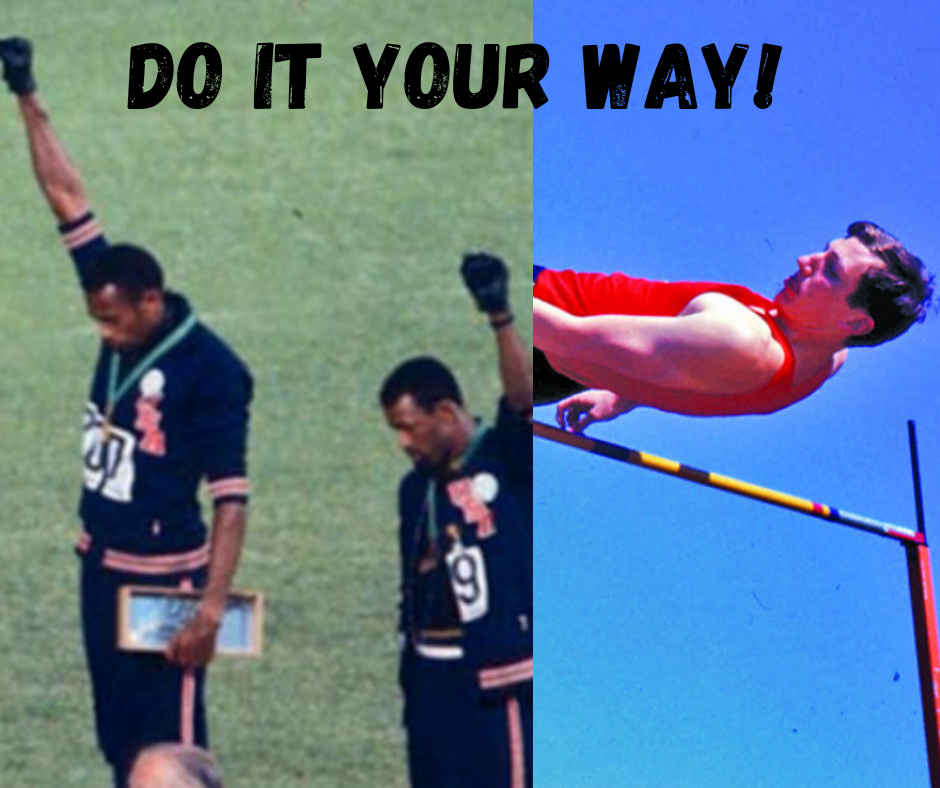“The only way to discover the limits of the possible is to go beyond them into the impossible.” — Arthur C. Clarke

Have you ever had an idea that people dismissed as crazy? You may want to start a business, switch careers, or approach a problem in a way no one else has. How did people react? Did they encourage you or make you feel foolish for even trying?
Now, imagine being Dick Fosbury.
In the 1960s, the world of high jumping had a standard technique. Athletes used the straddle method, which involved jumping face-down over the bar. It worked—until Fosbury came along with something no one had ever seen before.
Instead of following the norm, he tried a completely different approach. He ran toward the bar, twisted his body, and flung himself backward over it. It looked bizarre. Spectators laughed. Coaches shook their heads. Commentators dismissed it as ineffective. But Fosbury kept at it. He kept refining his technique, losing meet after meet, but he believed in his way.
Can you imagine how frustrating it must have been to have a vision, to see something differently, and to be ridiculed for it?
Then, in 1968, everything changed.
At the Olympic Games in Mexico City, Fosbury used his unconventional style—now known as the Fosbury Flop—to clear 2.24 meters (7 feet, 4.25 inches) and win the gold medal. The same people who laughed were now in awe. Within years, his method became the global standard for high jumping. Today, almost every elite high jumper uses the Fosbury Flop.
However, Mexico City in 1968 was significant for another reason. While Fosbury revolutionized his sport, two Black athletes, Tommie Smith and John Carlos, made history.
After winning gold and bronze in the 200-meter sprint, Smith and Carlos stood on the podium, raised their black-gloved fists, and bowed their heads during the national anthem in a silent protest against racial injustice. Unlike Fosbury, who was eventually celebrated for innovation, Smith and Carlos were immediately condemned. They were stripped of their medals, banned from the Olympic Village, and vilified back home. While Fosbury’s unconventional leap became the future of high jumping, Smith and Carlos’ courageous stance made them outcasts—for years.
But time has a way of revealing the truth. Decades later, Smith and Carlos were finally recognized for their bravery. Their stance became an enduring symbol of resistance, justice, and the power of athletes to spark change. Just like Fosbury, they did it their way. But the cost was far more significant.
The Consequences of Doing It Your Way
I think about this courage whenever I hear My Way by Frank Sinatra. But the first time I listened to the song, it wasn’t from Sinatra. It was on Jay-Z’s Blueprint 2 album, in the song I Did It My Way. I was struck by how the song sampled Sinatra’s classic and turned it into something new, much like Fosbury flipped the script on high jumping. Jay-Z wasn’t just rapping; he embodied the same philosophy—charting his own course despite the doubters. Sinatra’s lyrics resonated:
“I faced it all, stood tall, and did it my way.”
Fosbury did it his way, and it changed everything. So did Smith and Carlos. But one was praised while the others were punished. That’s the reality of doing things your way—it can lead to triumph or turbulence.
So, what does this mean for you?
If you have an idea, a different way of doing things, or a unique perspective, don’t be afraid to explore it. But also understand the weight of that choice. Here are a few strategies to help you:
Trust Your Vision
Just because something hasn’t been done before doesn’t mean it can’t be. Innovation starts with belief. What’s something you’ve been hesitant to try because others might not understand it?
Be Willing to Fail
Fosbury didn’t win right away. He lost—a lot. But failure is part of the process. What if he had quit after his first loss? His legacy wouldn’t exist. What’s one failure that could be reframed as a lesson?
Ignore the Naysayers
People love to critique what they don’t understand. If you’re doing something different, expect resistance. But remember: the same people who doubt you now might be the ones cheering for you later.
Understand the Cost
Fosbury was eventually celebrated, but Smith and Carlos were shunned before they were honored. Sometimes, standing in your truth comes with consequences. Are you prepared for them?
Play the Long Game
Success doesn’t always come quickly. The best things take time. What’s one thing you will stick with, even if it doesn’t bring instant results?
Trying things your way doesn’t mean it will always work—or you’ll be celebrated immediately. But you’ll never know if you don’t try. Fosbury changed his sport forever because he was willing to look foolish before he looked brilliant. Smith and Carlos changed history because they were willing to sacrifice comfort for conviction.
So, what’s your version of the Fosbury Flop? What’s the stand you’re willing to take?
Maybe it’s time to do it your way.
